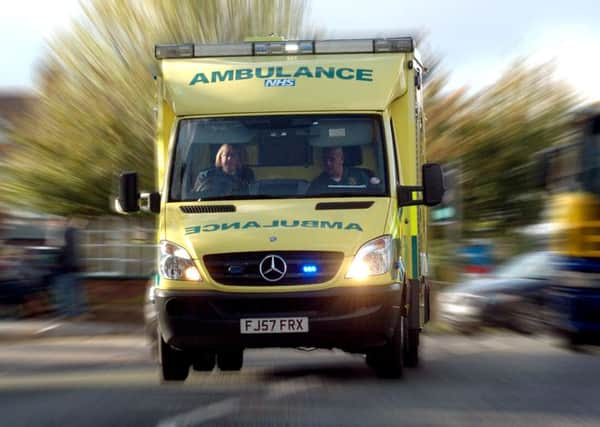Government refuses to accept blame for shortage of paramedics in Northamptonshire


East Midlands Ambulance Service was given a poor report by the Care Quality Commission this week, and inspectors unearthed many examples of low staff numbers.
But the Government has said the available explanations do not include a lack of funding from above to match the rise in emergency calls.
Advertisement
Hide AdAdvertisement
Hide AdA Department of Health spokeswoman said: “We know that ambulance services are facing unprecedented demand, but there is no excuse for services falling short of the standards that patients rightly expect. We are determined to create a safer NHS, one where substandard care will not be tolerated.
“To help, we are training an extra 1,900 paramedics over the next five years, on top of the 2,000 extra paramedics who have joined the NHS since 2010, and we have increased funding in ambulance services. EMAS must now take necessary action to address the Care Quality Commission’s concerns.”
The Government pointed out that, despite its directive to NHS trusts to make annual savings, it has invested £10 billion in the NHS plan for the future, including almost £4 billion next year.
Furthermore, EMAS also managed to recruit more than 300 new frontline staff since April 2015 and, following approval of plans in March, will invest in an additional 68 ambulance vehicles this year.
Advertisement
Hide AdAdvertisement
Hide AdEMAS’s interim CEO, Richard Henderson, said the trust was “sorry and disappointed” at some parts of the CQC report.
But, as well as blaming long handover times at hospitals for failure to hit targets, he insisted that EMAS’s troubles were in part caused by financial restrictions.
However he did offer hope that what EMAS believe is a more realistic settlement may be forthcoming.
A key part of its 999 contract for 2016/17 is the agreement to carry out an independent demand, capacity and price review.
Advertisement
Hide AdAdvertisement
Hide AdIt will look in detail at the level of demand from patients and the level of staff and vehicles needed, along with finance required to respond.
Mr Henderson said: “Together with the NHS clinical commissioning groups that pay us to provide a service, we have agreed to implement the outcomes of the review, and this should ensure we are able to meet demand.”
Meanwhile, NHS Arden & GEM said it was working hard to put together a plan to improve matters and “will continue to work closely with [EMAS] to support improvement.”